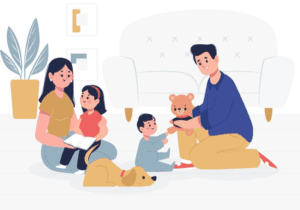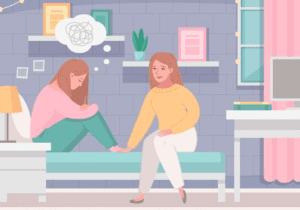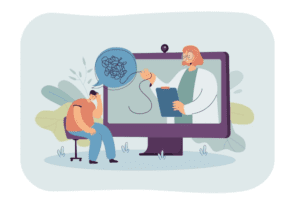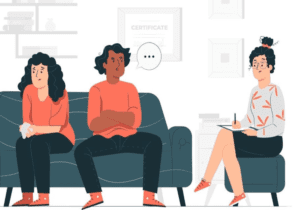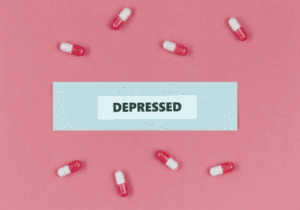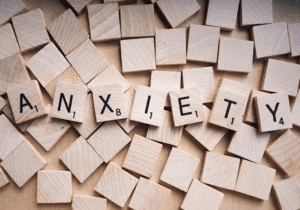Your Partner, Your Symptom ! A Different Way of Seeing Relationships
This article has been researched and written by Yassine Tayie. AI has not been used in producing this article.
This is an invitation to look at relationships from a different perspective, inspired by Jacques-Alain Miller’s thesis, “The Partner as a Symptom.”
Let’s start with a quick definition of a Symptom: In Lacanian psychoanalysis: the symptom isn’t simply a fault, but it’s the way the subject’s system holds together; it’s what organises their system. It’s the ugly duct tape on a leak: seeing it disturbs you but tear it off before you get to understand it’s role, and you flood the house.”
Which brings us to today’s theme: partner-as-symptom. Seen through this lens, what we call “dysfunctional” in a relationship may be precisely what sustains it. Your partner might often be your symptom, «your duct tape». What most irritates you is tied to what draws you in.
Example: you’re meticulous; you like everything tidy. Surprised, you fall for someone delightfully chaotic. At first it’s charming; Move in together and, suddenly, you’re arguing about where things belong — while still oddly glued to each other. A duct-tape fit, if you like.
How does this operate in a relationship? What do we unconsciously seek?
Individuals don’t enter love with what they have so much with what they lack. “To love is a wish to be loved” – in that sense, each of us seeks to be loved for our leak — the bit the duct tape covers — rather than the functioning facade.
A simple (cliché) vignette : Let’s see how that might operate in a relationship.
For an “X” reason, Person A is looking for a partner — a duct tape — with the following description: “ someone who can provide for me.” In love-terms : “If my partner provides, they love me — then I feel loved.”
For a “Y” reason, Person B is looking for a partner — yes, their duct tape — with the following description: “ someone to provide for.” Love-terms : “If I provide, my partner loves me — then I feel loved.”
Once upon a time in Dubai — Fate, Tinder, Cupid, take your pick — Person A meets Person B. Match made. It works as long as A keeps asking and B keeps providing. The circuit runs; both feel loved.
When the symptom shifts:
We might think it’s all sorted, but then comes the challenging part.
Life happens, A or B are evolving; their symptoms start shifting – A wants to be more independent; B doesn’t want to define their worth through providing to other. Then the squeaks, the leaks, and the slips start:
B : “Oh, you only love me because of what I have, not because of who I am.” “I’m a person, not a wallet with legs!”
A : “I don’t want an allowance; I want to feel held.” “You buy things so you don’t have to be here!”
Then the relationship keeps leaking, evolves, finds another set-up, reinvents itself to keep going, or breaks. And what happens when it breaks? Well, if neither of the two knows the “X” or the “Y” reason we stated earlier, then guilt, anxiety, and insecurities fill that void.
What we take from it ?
Here’s the strange beauty: even when relationships are difficult — or gloriously singular — they’re chances to learn about ourselves, our symptoms, our X’s (exes) and our Y’s (whys).
- This only confirms the truth of these phrases we often hear — «My other half», «My life», «My loved one». It’s less an attempt to possess the other (still illegal, by the way) and more a way of saying the partner mirrors and sets in motion parts of myself I don’t quite have a hold of.
I hope you enjoyed this as much as I did writing it — take it as a cheeky challenge to think differently, not a license to start calling your partner ‘ my symptom ’ instead of ‘ my love ’.”
Gentle Parenting: What is it and How to Try it Yourself
When it comes to raising children, no one has all the answers. Every parent and child have unique challenges and needs. Navigating these individual circumstances along with ever-changing environments, such as school …
How to Improve Your Relationship with Your Children – A Psychologist’s Guide
The modern family’s lifestyle leaves us shuffling from school to sports practice, family events, visiting friends, and everything in between. As society evolves to become more on-the-go and technologically advanced, w…
Tips for Communicating With Someone Who is Depressed
Knowing what to say to someone who is struggling with depression can be challenging. Perhaps you are afraid you might say the wrong thing. Or maybe you will say something that makes their day even worse? Maybe you fee…
Who Can Benefit From Couple Counseling?
Relationships are far from perfect. Each person brings his or her own ideas, values, opinions, and personal history into a relationship, and they don’t always match their partner’s. Those differences don’t necessaril…
What is EMDR Therapy and How Does it Help People?
Since the days of Freud, we’ve come to expect that managing our trauma is a lifelong journey. However, this is not the case. Eye Movement Desensitization and Reprocessing therapy (EMDR therapy) was developed in 1990 …
Everything You Need to Know About Couples Therapy
It’s perfectly expected for couples in relationships to face challenges from time to time. Every relationship has its unique needs and challenges. Couples see therapy for a number of unique reasons. From miscommunicat…
Does Social Media Cause Depression?
According to recent estimates, roughly 4 billion people worldwide use various social media platforms, including Facebook, Twitter, Instagram, and LinkedIn. It’s not hard to believe. When you take a look around a crowd…
Child Development: Play Therapy in Dubai
Every child deserves to feel safe, empowered, understood, connected, and loved. Play therapy is based on the foundation of providing a safe environment for children to process their emotions and develop the social, em…
The Future of Depression Treatment
According to the World Health Organization (WHO), depression impacts more than 264 million people globally. Once diagnosed, depression treatment can be by medications, psychotherapy, or a combination of the two. While…
How to Talk to Your Therapist When You Have Social Anxiety
Social anxiety disorder (SAD), also called a social phobia, is characterized by intense fear or anxiety of being negatively evaluated, judged, or rejected in a social situation. Individuals with social anxiety often …


